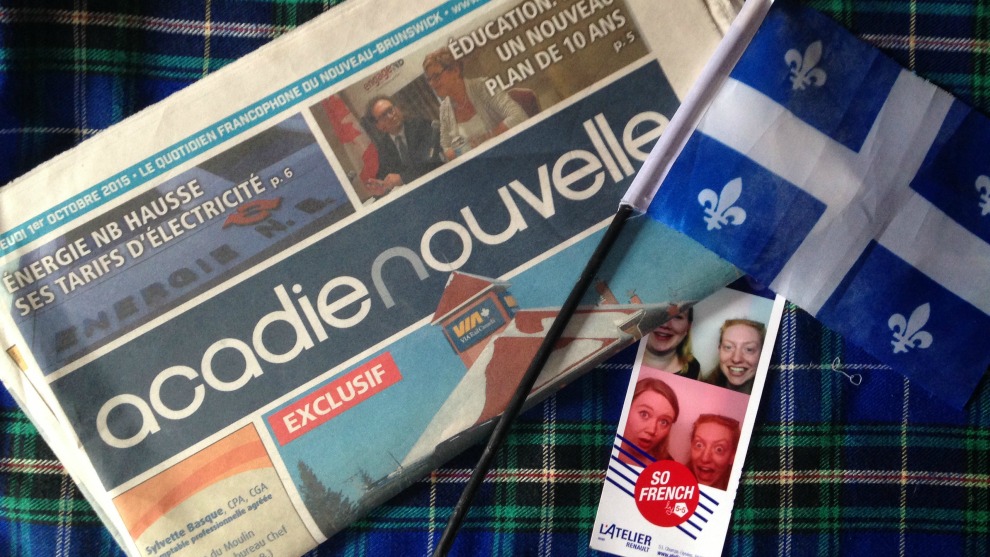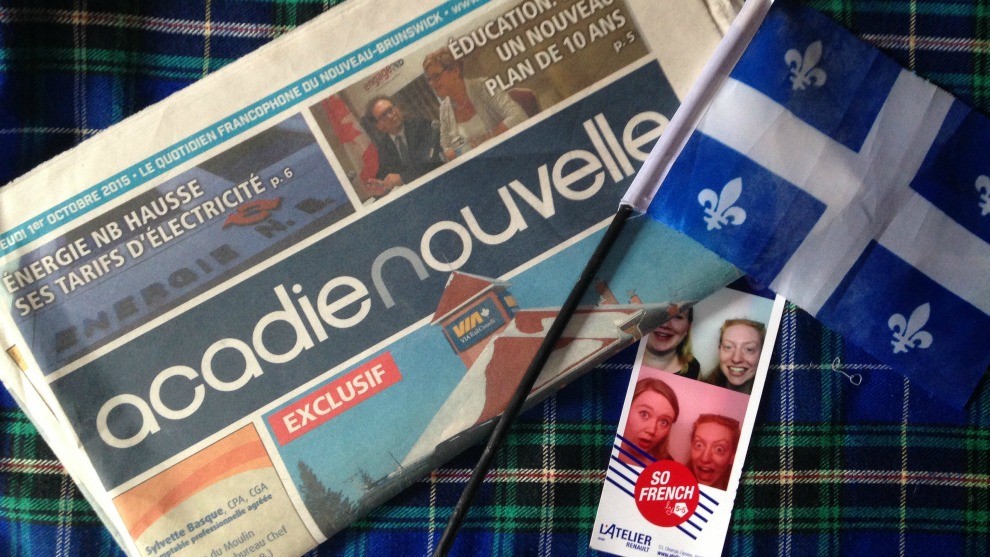LANGUAGE
Journée internationale de la Francophonie: What it means for Nova Scotians
A look at how Nova Scotia’s francophone community fits into the global French union

caption
Francophones come from many different backgrounds.
caption
Francophones come from many different backgrounds, including Acadian and Quebecois.March 20 is la Journée Internationale de la Francophonie, a day created to celebrate the union of 57 member states through their French language and culture. As a bilingual country, Canada is a member, with even more specific entries for New Brunswick and Quebec.
Here’s what this union means to francophones in Nova Scotia:
SHARED HISTORY
In 2011, about 12 per cent of people in Halifax spoke either French only, or both English and French, according to Statistics Canada.
Francophones in Nova Scotia are likely to be of Quebec descent, or Acadian. The Acadian community is behind many of the French resources, like their school board.
Marie-Claude Rioux is the head of the Fédération Acadienne de la Nouvelle Ecosse (FANE), the province’s Acadian federation. She says the common thread for the world’s Acadians is the shared history of their deportation in the 1700s. Their spread worldwide is a result of the expulsion. Former governor general and Haitian-Canadian Michaëlle Jean— who is also the current head of la Francophonie — has an Acadian ancestor.
Rioux says that while her people — a generally patriotic group now concentrated in Eastern Canada, but as far flung as the Falklands — are their own entity, to feel a part of la Francophonie is still important.
“It’s good to know that you’re a member of something that is larger than your own group,” says Rioux.
UNITED IN DIVERSITY
Dalhousie French professor Vincent Simedoh specializes in the literature and culture of francophone minorities. He says to be part of la Francophonie means to have space in something larger than your own community. Each French-speaking area has its own way of living.
“At the same time, they are part of the world. They can listen to a Quebec musician and feel, ‘oh, that talks to me.’ They can listen to a Manitoulin French speaker and say ‘oh, I understand a bit,’ and they don’t feel anymore isolated,” says Simedoh.
From Parisian French to Quebecois slang to the English-tinged chiac of New Brunswick, the language varies from place to place. Simedoh says it doesn’t weaken their bonds at all.
“Those diversity make the French community very, very rich,” says Simedoh.
FIGHT FOR LINGUISTIC RIGHTS
Despite differences in culture and dialect, what unites the member states of la Francophonie is the continued fight to safeguard their language.
“Francophones are a minority in North America. When the tide is that strong, the tide in favour of English, you cannot just relax and go with the flow because the flow will take you towards the English language,” says Rioux.
Francophones in Nova Scotia only got French-first schools in 1981. The fight for language education is just one that organizations like the FANE now take up.
“You have to fight all the time, and be vigilant all the time,” says Rioux.
“I’m not talking fighting court cases and things like that, but really to appreciate what you have, and to make sure that we keep progressing towards getting better tools for our development and our survival as a people.”

